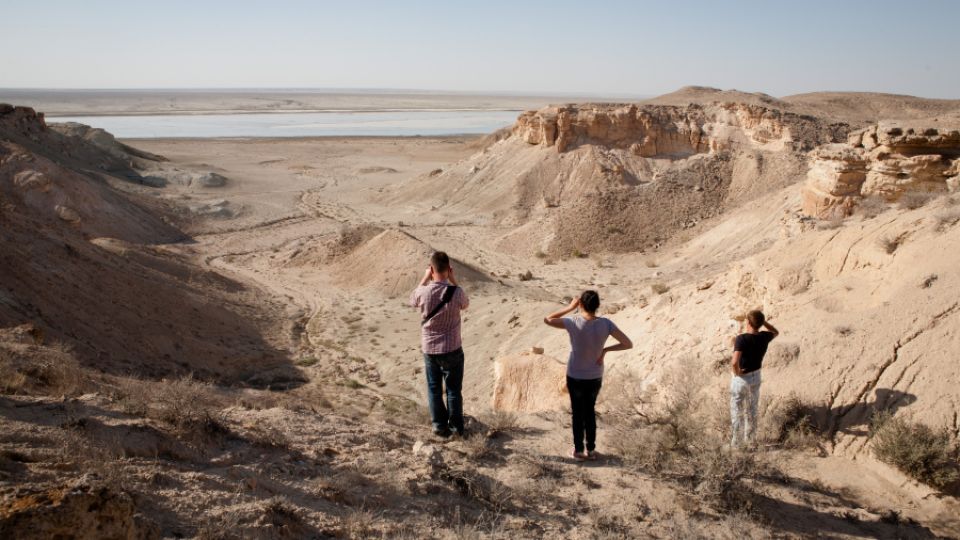June 8, KARAGANDY – Today, the non-governmental organization EcoMuseum from Karagandy signed a memorandum of cooperation with the Karagandy Region Akimat to develop a regional strategy for fighting climate change to protect the people and economy. They did so on the occasion of a round table organized by the EU project “Participation of the civil society in mitigation of climate change” which aims to raise awareness about the climate change in the region and implement measures to reduce emissions of greenhouse gases into the atmosphere.
Representatives of the EU Delegation, local authorities, and civil society organizations (CSOs) discussed practical ways to transform Kazakhstan’s commitment to the Paris Agreement into local measures and involve civil society, especially the youth, in the process.
Johannes Stenbæk Madsen, Head of the Cooperation Section at the European Union Delegation to Kazakhstan, addressed the participants: “The EU supports Kazakhstan in decentralization and green transition. We are happy to help transform the country’s international commitments into local actions through this project. It is crucial to involve civil society, so the process is transparent, trustworthy, and leaves no one behind.“
The Karagandy Region feels urgency for the transition as the increased severity and frequency of floods and droughts pose severe risks to the people’s livelihood and the country’s economy. Nurbek Serikov, Head of the Department of Natural Resources and Environmental Management at the Regional Akimat, explained: “Environmental issues are relevant to our region, especially in the cities of Temirtau, Balkhash, Zhezkazgan. Every year, the region's enterprises emit more than 600 thousand tons of pollutants into the atmosphere. According to the annual bulletin for monitoring the climate change in Kazakhstan, an increase in the average temperature in the region, the number of abnormal temperature cases, and other extreme weather events are recorded. We feel the need to modernize our economy by introducing green technologies to reduce CO2 and other greenhouse gases.”
Martin Skalský, the chair of Arnika, supported his words: “Some of the EU regions, cities, or towns boast examples of successful measures to tackle climate change. Together with experts and municipalities, we will define the measures and best practices that are most relevant for Kazakhstan and help implement them.”
“Our project is aimed to fill the gap between Kazakhstan’s international commitments under the Paris Agreement and their implementation at the local level. We will bring European expertise to Kazakhstan authorities,” concluded Dmitriy Kalmykov, development director of EcoMuseum.
The EU-funded project is implemented by Arnika NGO and EcoMuseum. The project’s duration: 30 months (March 2022 – August 2024). The total budget: EUR 288,325.00, including the EU’s contribution of EUR 250,000.








